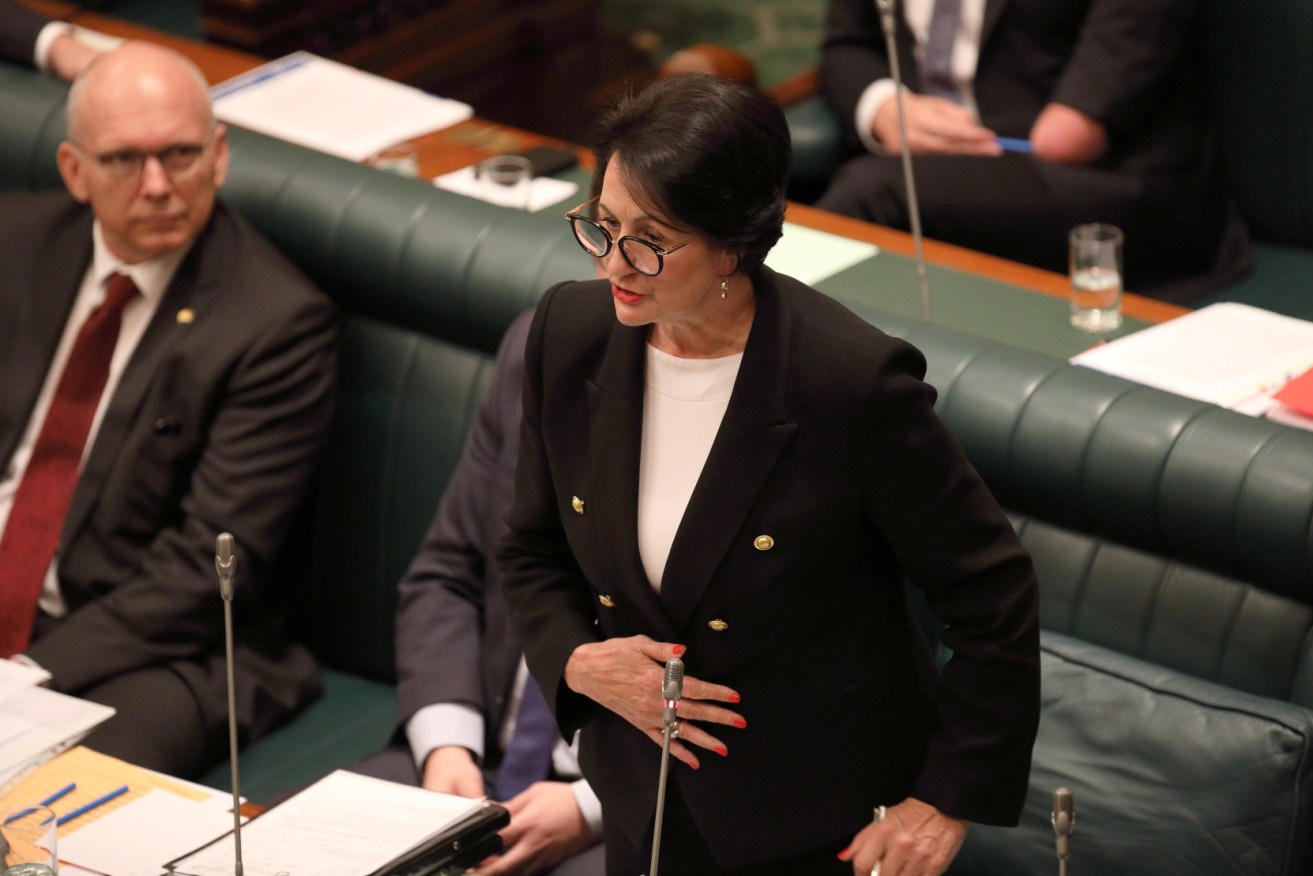Crackdown backdown: Unions escape net in lobbyist reforms
Marshall Government plans to crack down on lobbyists have been watered down, with legislation to be introduced today allowing trade union officials to continue on the state register.

Vickie Chapman in parliament. Photo: Tony Lewis / InDaily
The amendments were flagged as a commitment before the 2018 state election, with the Liberals pledging to “amend the Lobbyists Act to prevent any office bearer of the state governing body of a registered political party or an associated entity such as a union from becoming a registered lobbyist in SA”.
A year ago, Attorney-General Vickie Chapman said the legislation was weeks away, vowing it would “ban any office bearer of an associated entity, such as a union, from becoming a registered lobbyist”.
However, she conceded today the Bill would take a different form after extensive legal advice and consultation.
“We had to look at questions of constitutional rights of communication,” she told InDaily.
“What we’ve proposed now to introduce is strictly within the category of office holders in prescribed organisations.”
She said the legislation would carry the same definition of associated entities as under the Electoral Act, which – while it identifies organisations that are “financial members of a registered political party” or having voting rights within them – does not stipulate trade unions.
“We’ve had to look really clearly at constitutional questions [and] we’ve come back within the parameters of that advice… we have to ensure we’re producing legislation that is enforceable,” Chapman said.
The Government also took into account feedback from the lobbying sector’s peak national body the Australian Professional Government Relations Association, as well as current registered lobbyists.
One of those, former Liberal MP and long-time party fundraiser Wayne Matthew, criticised the new Bill saying he was “still not happy with it”.
Matthew, who says he has relinquished his party office-holding roles in any case, made a submission urging the Government to crack down on industry associations within the Act.
“What I put to them was there’s a noticeable gap in lobbying legislation, and that gap is industry associations,” he said.
“Currently, if you want to lobby a property developer you could go to a registered lobbyist – or you could go to any one of the number of industry associations and get them to do it for you.”
The latter, he said, did not have to be declared as it would for registered lobbyists.
“That gives me cause for concern,” he said.
“I’d argue there’s potential for the system to be corrupted and, after putting that to them, I was pretty disappointed to find that the latest version [of the Bill] appears to specifically exclude those other organisations.
“I think that’s a mistake.”
He said the exclusion of trade union office holders was similarly “disappointing”.
But Chapman insists the Bill still represents a “strengthening of SA lobbying laws”, saying: “Our prohibition will make it clear that a person can be an official of a political party or a lobbyist, but not both.”
“Our election commitment was to prevent any office bearer of a political party, and of associated entities of parties, to lobby government officials – and that’s exactly what these amendments do.
“Industry associations fall outside the scope of our election commitment.”
Want to comment?
Send us an email, making it clear which story you’re commenting on and including your full name (required for publication) and phone number (only for verification purposes). Please put “Reader views” in the subject.
We’ll publish the best comments in a regular “Reader Views” post. Your comments can be brief, or we can accept up to 350 words, or thereabouts.
InDaily has changed the way we receive comments. Go here for an explanation.




